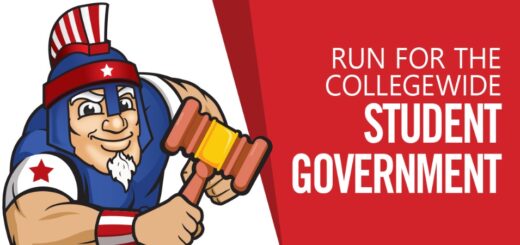Developing Your College Essay: 10 Tips From 10 Writing Tutors
Eastern Florida State College’s Academic Success Centers can help you develop your college essay this semester. We have experienced writing tutors who are here to answer your questions, help you get started and help you along your academic journey. So, meet each tutor, learn some tips and consider making an appointment virtually or face-to-face by accessing the resources at the end of this article.
Tip #1: Follow a Formula
“Look at developing an essay as you would follow a formula. Find your idea (topic), form your initial opinion or claim (thesis), explore what you want to say about your idea (main points), research your ideas to find support (gather sources), consider closing statements (conclusion) and begin writing a first draft. Revise your thesis if necessary. Remember to review your ideas or paper with an EFSC writing tutor.” —Patty S.
Tip #2: Think of a Puzzle
“Many of us believe that our essays should match the perfection of experienced and famous writers. My advice to you is to try and keep it simple. Try brainstorming ideas on the topic and then make a good effort on crafting a strong thesis statement. Consider these the edges of the essay jigsaw puzzle. Then, start working on the inner pieces.” —Denise C.-H.
Tip #3: Plan Your Essay
“The best advice I can give for approaching an essay is to plan. Draft a working thesis drawn from the assignment prompt and build an outline of ideas around that thesis. Adjust things as much as necessary as you do your research and drafting; you are in control of the process. The investment of a little time upfront to create a plan for your essay will save you double or more time on the back end of revision. Ultimately, this planning also helps you on the road to writing something worth reading: something with a point.” —Eryn S.
Tip #4: Consider the Occasion
“Before writing any paper, consider the occasion. Yes, you’re writing a paper to your professor, but what else? Are you being asked to write a research paper? If so, act like a researcher. Develop a professional voice, use an academic tone and support your claim using reliable sources. Understanding an assignment’s purpose and intended audience can dramatically ease any student’s writing process. And if you’re not sure, always check with your professor or a writing consultant. EFSC faculty and staff want you to succeed, so don’t be afraid to reach out for help.” —Rebecca C.
Tip #5: Develop Your Thesis Statement
“Thesis statement, thesis statement, thesis statement. Everything else lines up behind this one factor. If it is strong, you are off to a great start. If it is flawed, even very strong writers will find themselves struggling or lost. Spend time making sure you have developed a great thesis statement before you spend 10 times as much time fixing the paper that results from a weak one.” —Alex C.
Tip #6: Outline and Brainstorm
“Don’t underestimate the power of outlining and brainstorming. Putting ideas together before sitting down to write an essay is key to helping everything stay on topic and make the most sense. Utilizing outlining can help create a roadmap that leads you right to success!” —Alexis L.
Tip #7: Embrace Change
“It can be hard to admit that the effort you’ve put into writing a sentence, a paragraph or even a whole draft hasn’t accomplished what you’d hoped it would. Keep in mind that your goal is to express your ideas clearly. It’s much easier to achieve that goal if you are able to address your paper’s strengths and weaknesses honestly. Sometimes that means starting over from the beginning. When you approach revising a draft of your essay, be willing to change the parts of your paper that aren’t working. Embrace the change, and the result will be a more successful assignment.” —Karen B.
Tip #8: Research Effectively
“As researching is a big part of writing for academics, knowing how to research effectively will make your efforts much more efficient. The Ctrl key + F key command (on a PC) is a very helpful tool. Entering this command when you are in, for example, an article from a database, will open a dialogue box wherein you can type key terms about your topic. For example, if your topic is how regular exercise benefits both physical and emotional health, then you might want to search for ‘pressure’ (as in blood pressure), ‘weight,’ ‘mood,’ ‘physical,’ ’emotional,’ ‘anxiety’ and the like. Entering a search term will highlight it everywhere that it might appear in the article, isolating key information that you might want to cite in your essay. Try using this powerful tool and become a very efficient researcher.” —Gary R.
Tip #9: Learn Through Multi-Media
“To develop your essay, find multi-media that will inform you about your topic. The brain learns in multi-dimensional ways, and your writing ideas can be sparked by videos, artworks and photos as well as by reading.” —Patricia M.
Tip #10: Break It Down
“Try to break down an essay into smaller parts/sections. An entire essay can seem overwhelming, but if you break it down into smaller chunks, it can seem more feasible. For example, try dividing each point/supporting idea into separate paragraphs/sections and focus on one at a time. Then, you can combine the paragraphs/sections together and work on transitions and making the essay flow.” —Madeline P.
Ready To Meet With a Tutor and Develop Your Essay?
So, there you have it: 10 EFSC writing tutors and 10 great tips to help you develop your college essay! As you continue on your academic journey, consider dropping in online through Microsoft Teams to meet with one of our writing tutors. Through our website, you have the opportunity to email the tutors or read their bios, as well as to make an appointment to go over your essay. Furthermore, we have videos on YouTube and LibGuides that can help guide your writing process. Along the way, if you have any questions about tutoring at EFSC, feel free to email us: writingcenter@easternflorida.edu.
We look forward to helping you develop your college essay and being a part of your academic success. After all, “Success is our middle name!”
- 12 Inspirational Quotes To Help You Complete Your Finals - April 20, 2022
- What To Bring to Every Tutoring Session - October 27, 2021
- Resources You Didn’t Know Were in the Academic Success Centers and Writing Centers - September 15, 2021







